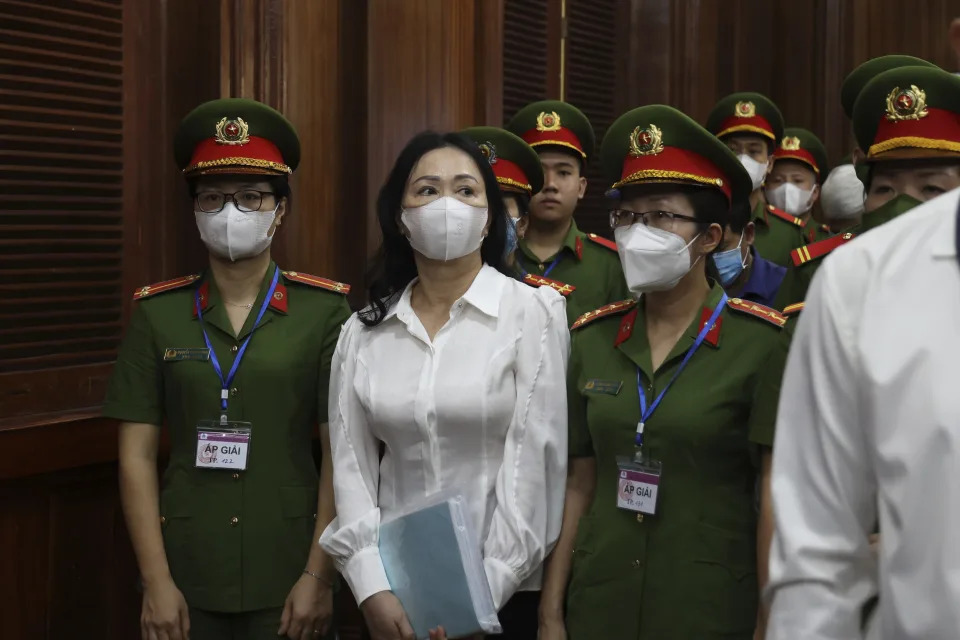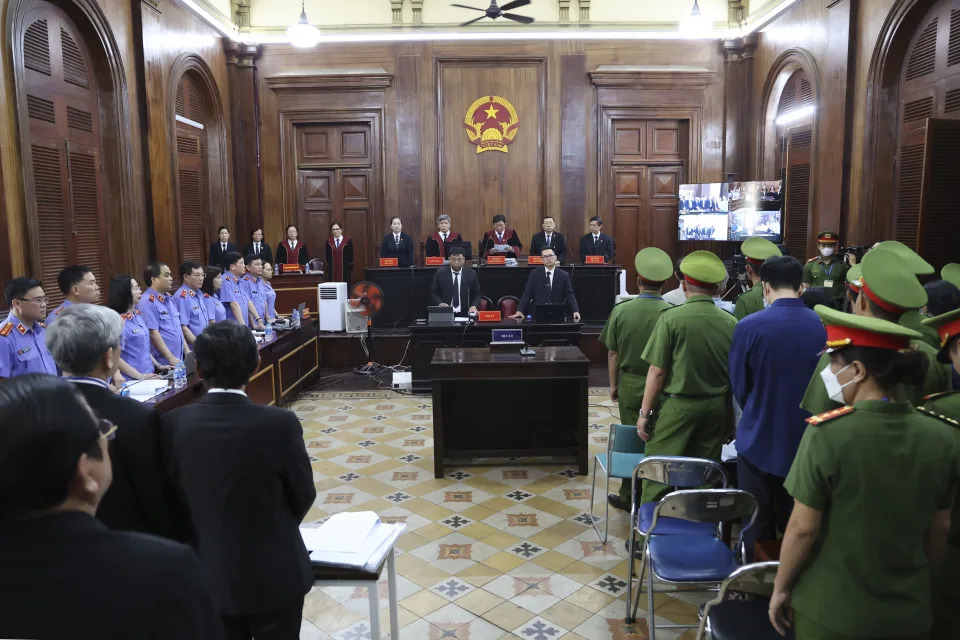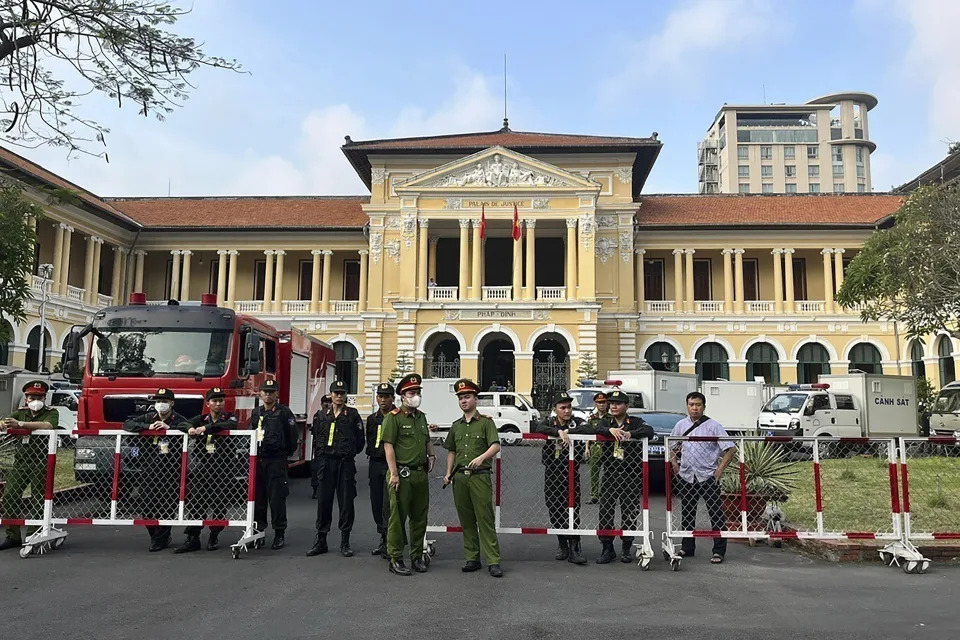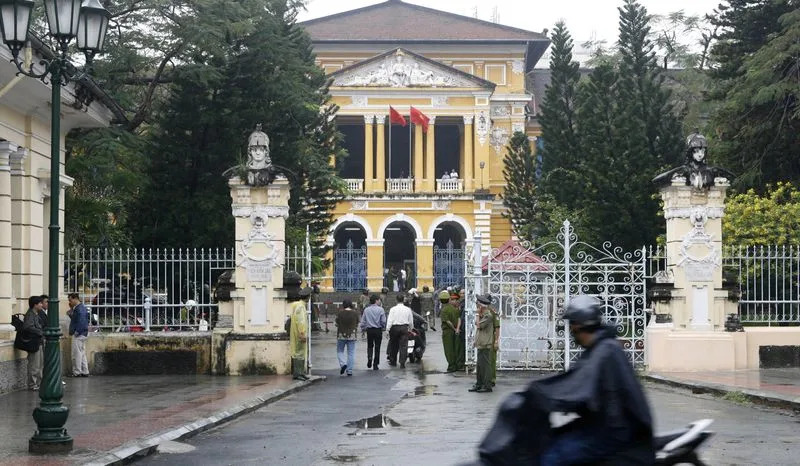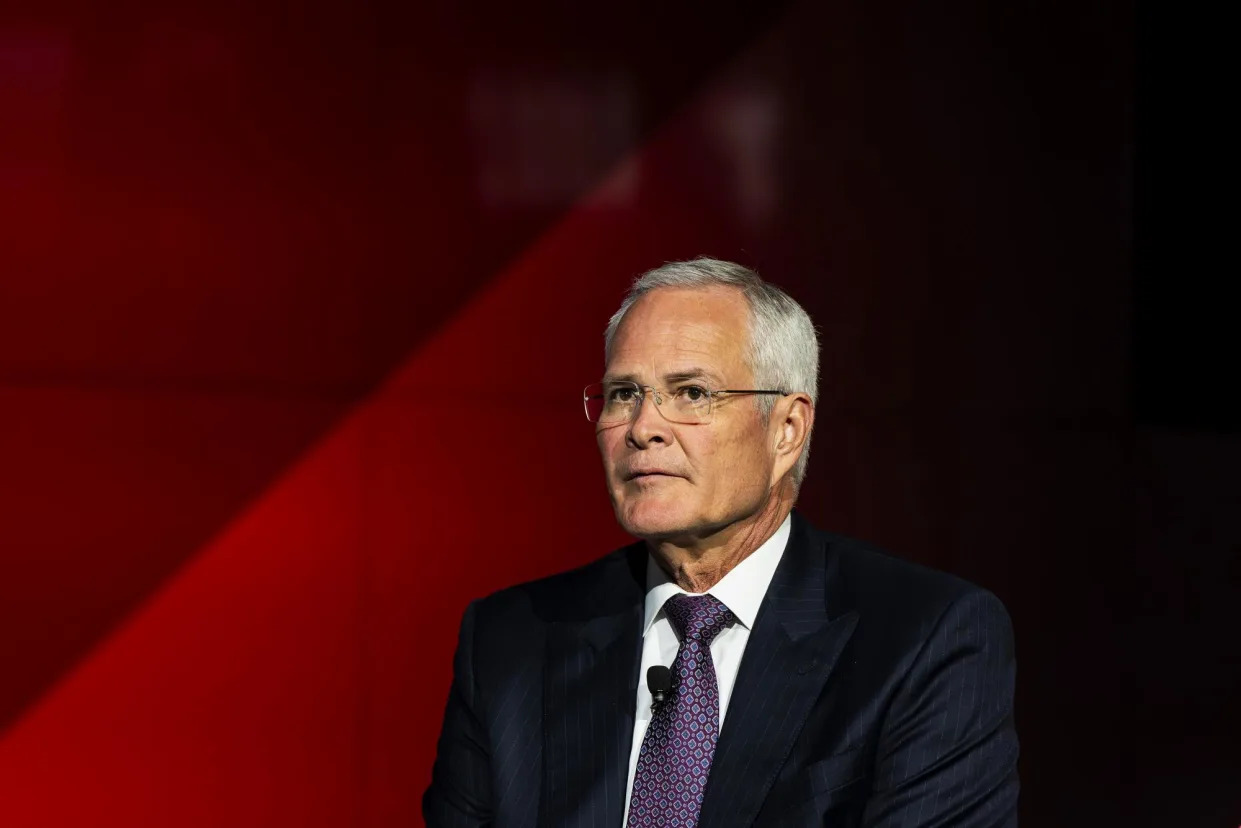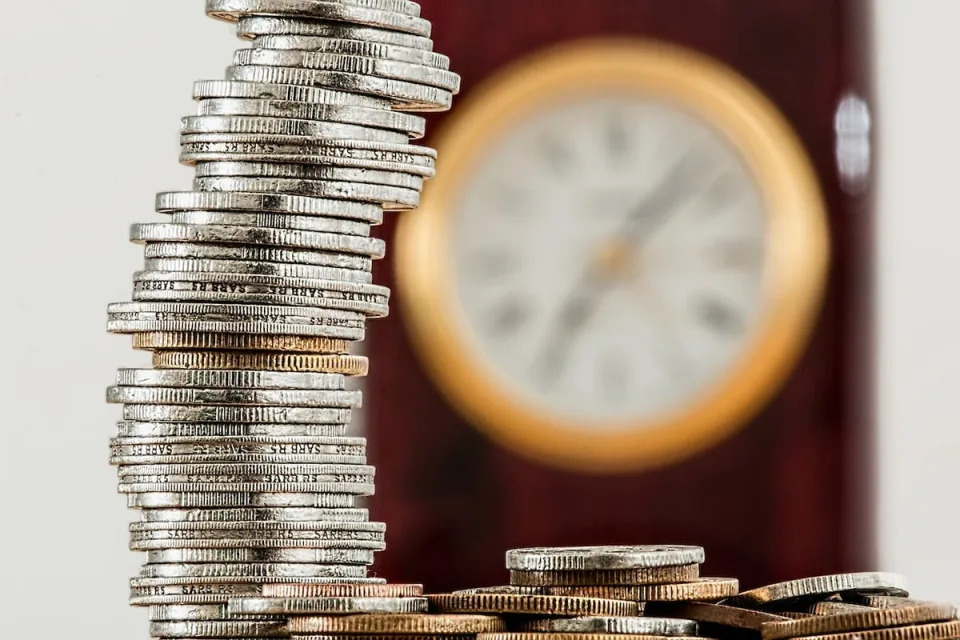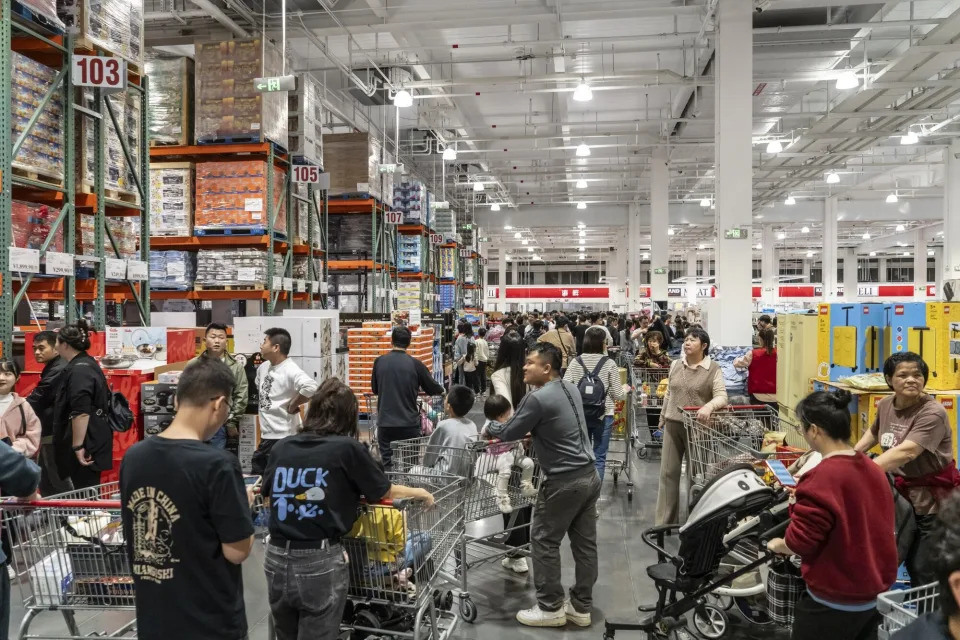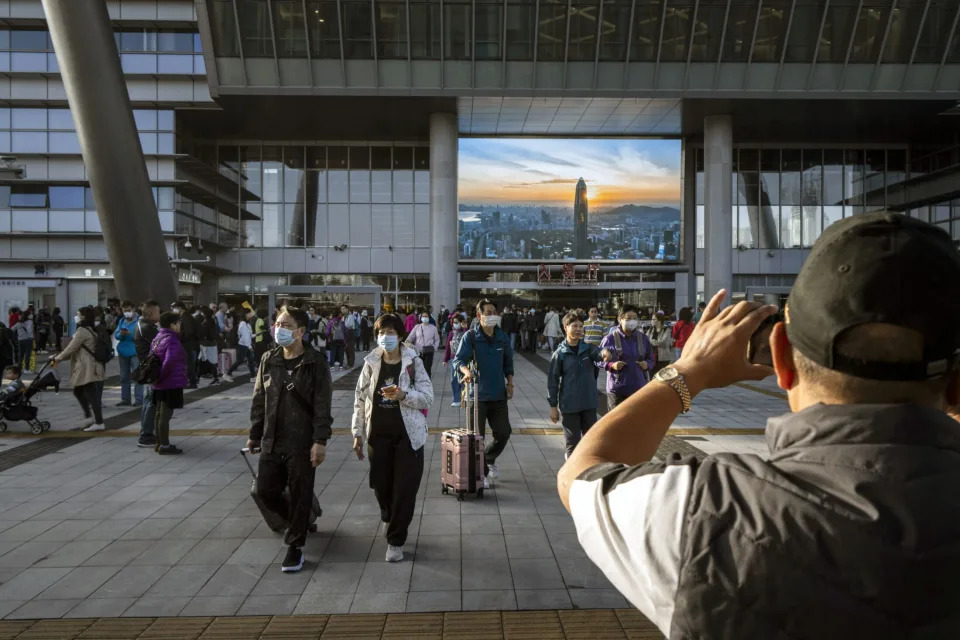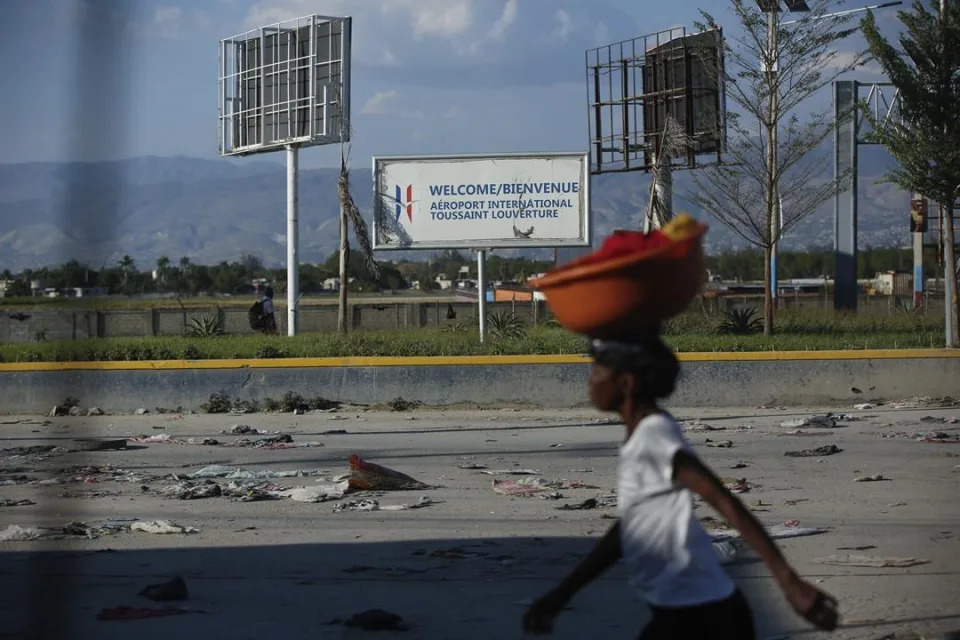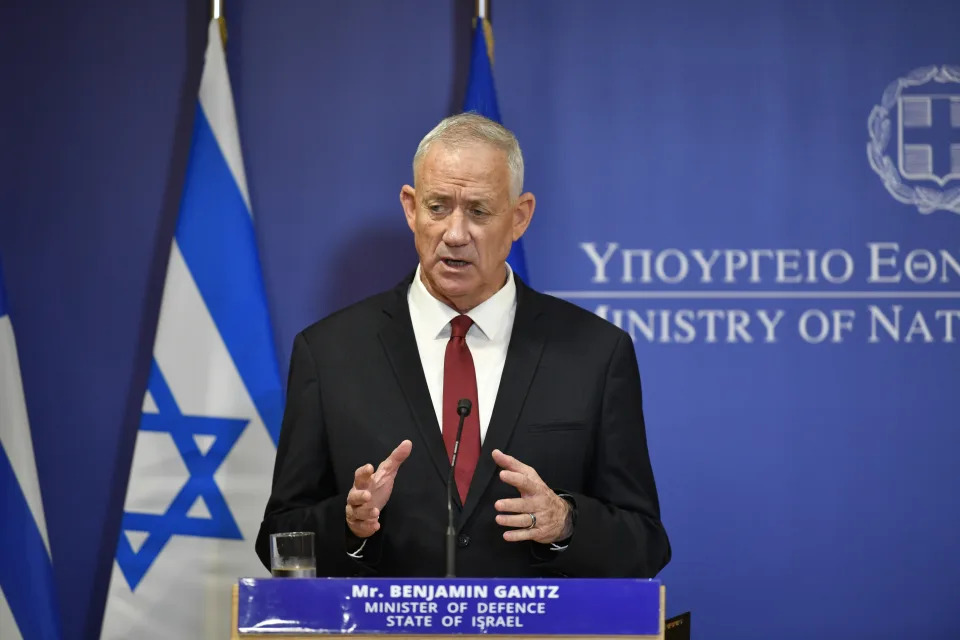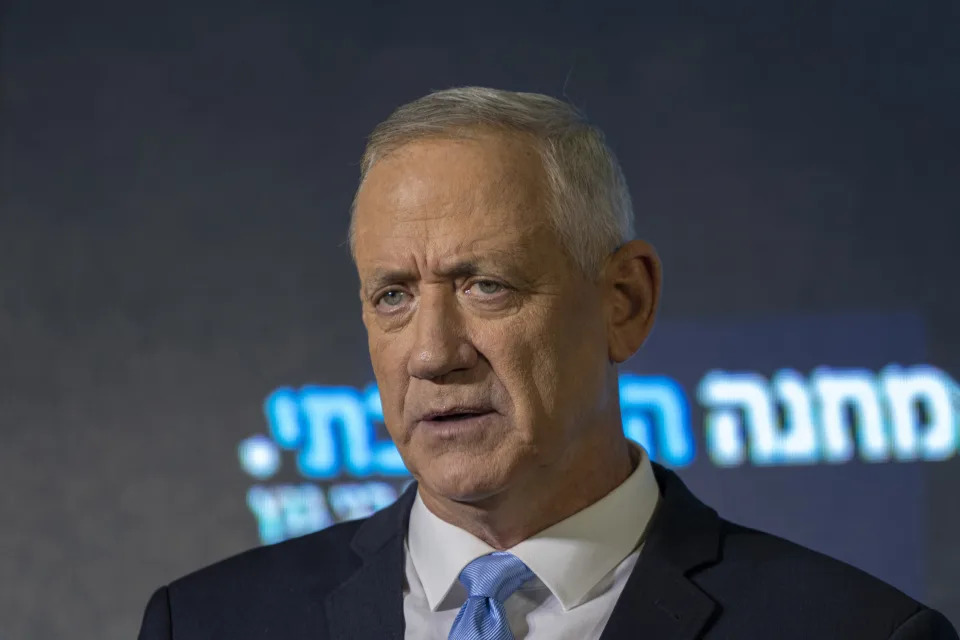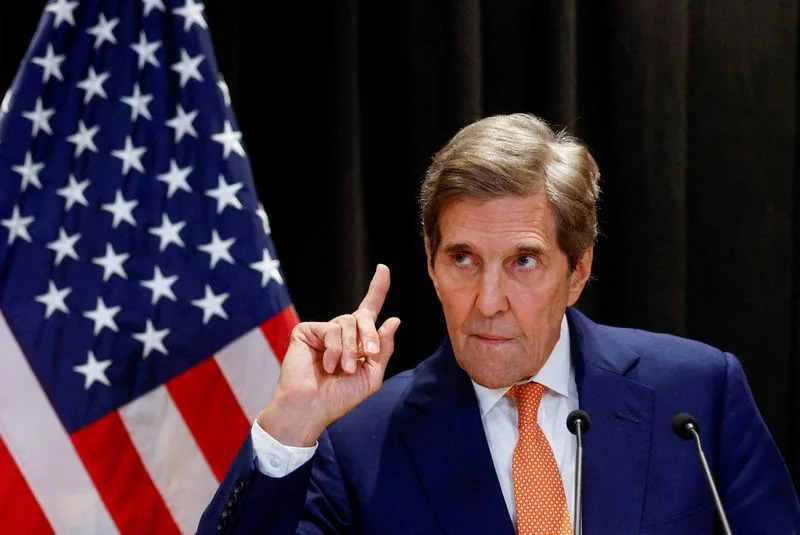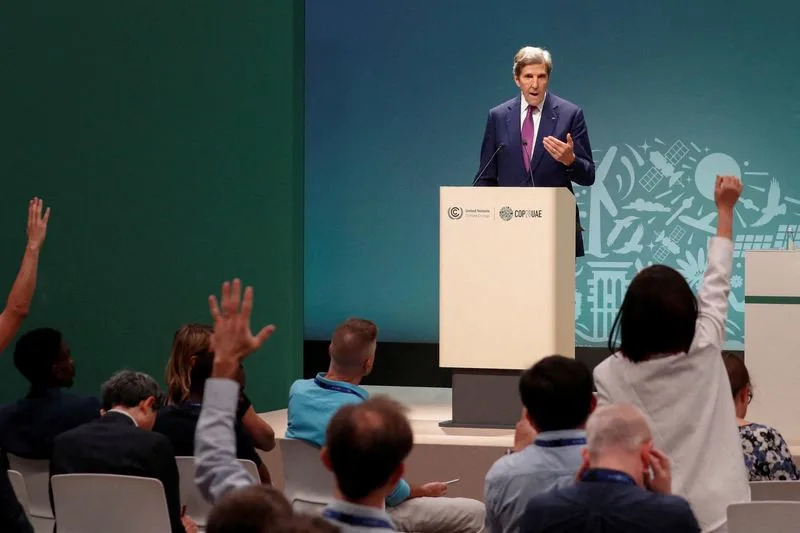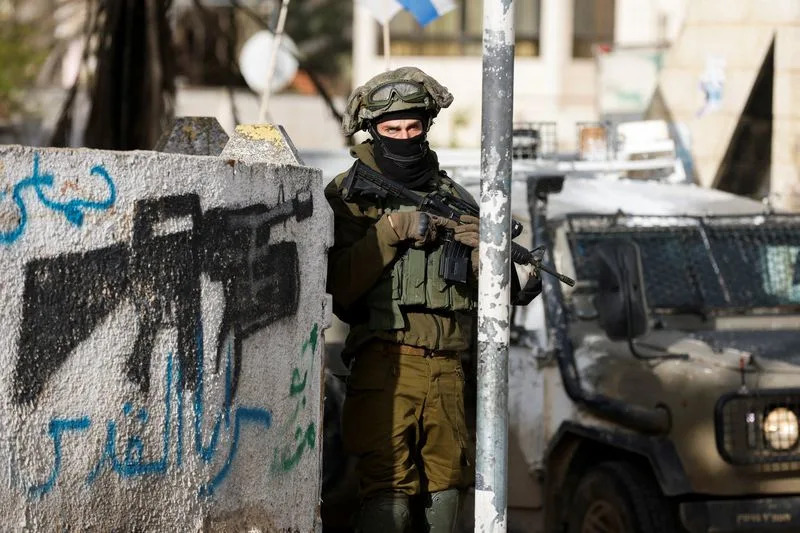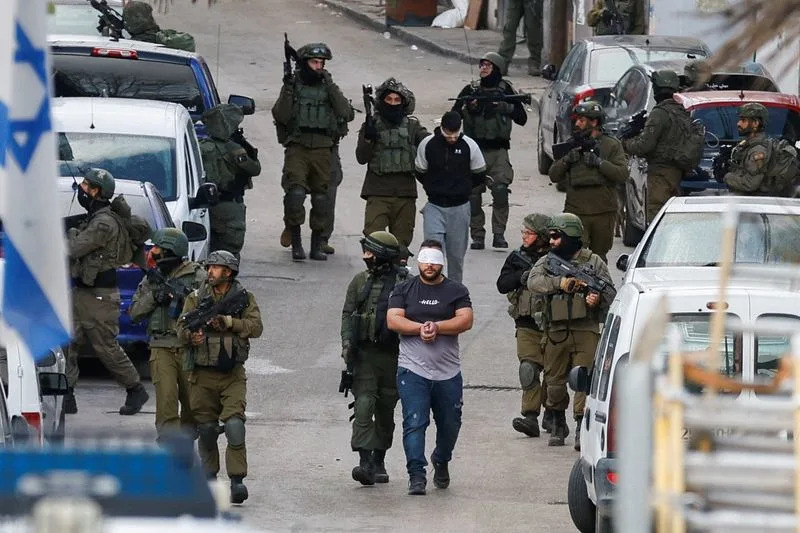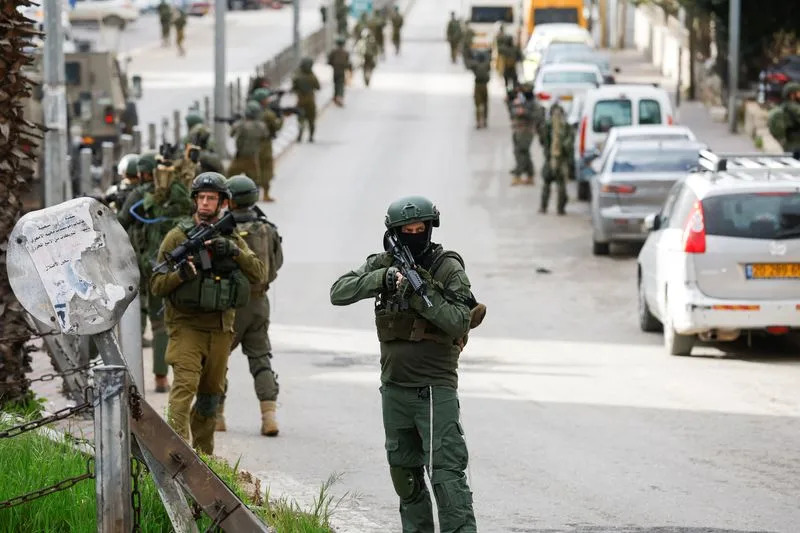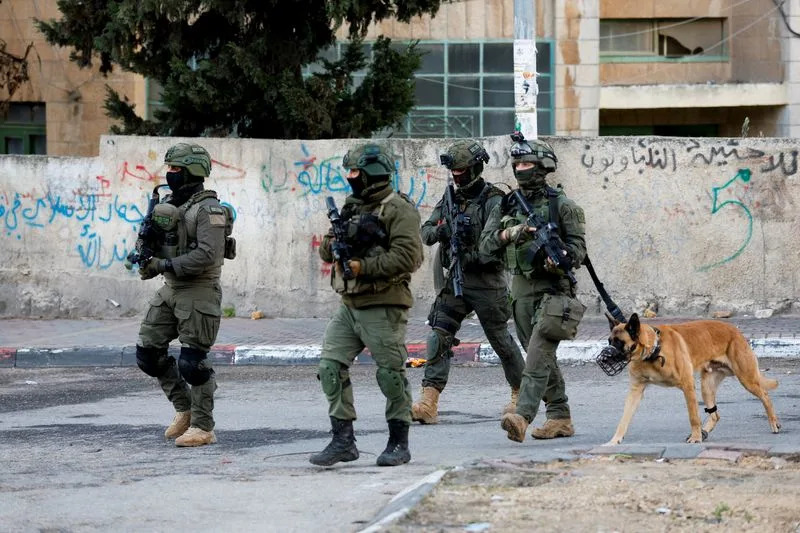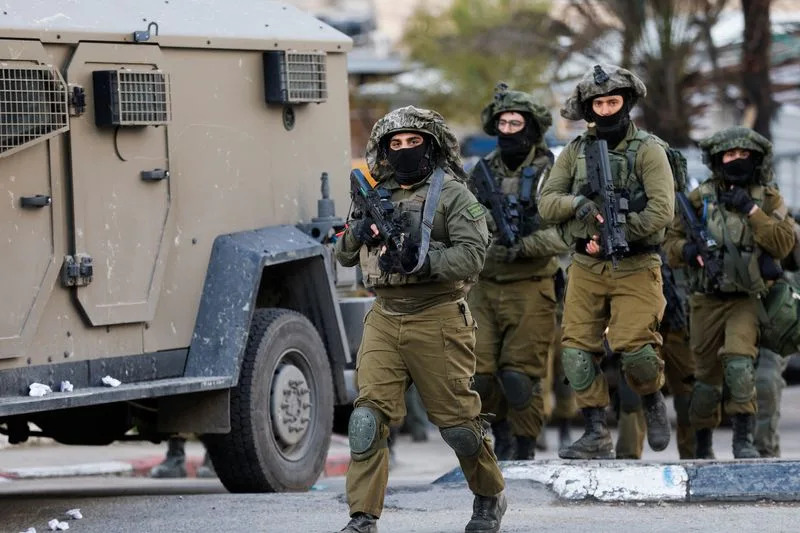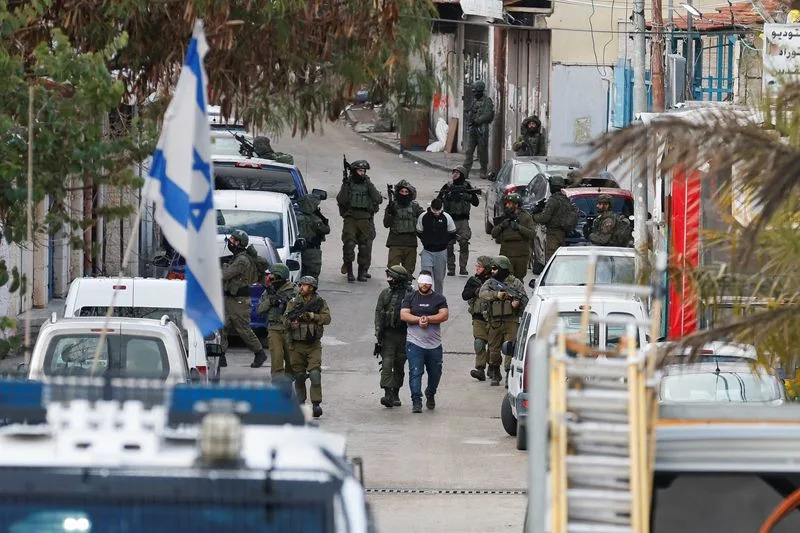Jeremy Diamond, CNN
Mon, March 4, 2024

The UN agency for Palestinian refugees on Monday accused Israel of detaining and torturing some of its staffers, coercing them into making false confessions about the agency’s ties to Hamas.
“Some of our staff have conveyed to UNRWA teams that they were forced to (make) confessions under torture and ill-treatment. These false confessions were in response to questioning about relations between UNRWA and Hamas and involvement in the 7 October attack against Israel,” UNRWA spokeswoman Juliette Touma said in a statement.
Israel has accused at least 12 staffers from the UN Relief and Works Agency of being involved in the October 7 terrorist attacks and has alleged that about 12% of UNRWA’s 13,000 staffers are members of Hamas or other Palestinian militant groups. Israeli officials have said some of the information about the 12 staffers involved in October 7 was obtained through cell phone data and other sources. UNRWA says it has fired 10 of the 12 accused staffers and that the other two are dead. CNN cannot confirm the allegations.
Touma said that false confessions elicited “under torture” were being used “to further spread misinformation about the Agency as part of attempts to dismantle UNRWA,” but did not tie those confessions to the allegations against the 12 staffers accused of participating in the October 7 attacks.
The allegations are part of an as yet unpublished report compiled by UNRWA alleging Israel’s widespread physical and psychological abuse of Palestinians detained in Gaza during the war, including 21 UNRWA staff members, some of whom said they were beaten and threatened.
The unreleased report, a copy of which CNN obtained, is largely based on the testimony of Gazan detainees held in Israeli prisons and at military sites and released back into Gaza at the Kerem Shalom border crossing between mid-December and mid-February. An UNRWA spokesperson said that when the report was leaked, the agency had not yet decided whether to release it publicly.
The detainees cited in the report gave testimony of beatings, sleep deprivation, sexual abuse and threats of sexual violence against both men and women detained by the Israeli military. Some of the detainees are also reported to have died while in Israeli custody, at times allegedly as a result of the abuse they suffered in detention.
CNN cannot independently verify all of the accounts of abuse listed in the UNRWA report, but has previously documented similar allegations of abuse by Palestinian detainees.
The Israeli military did not immediately respond to the allegations about the torture and detention of UNRWA staffers, but said in a statement that “the mistreatment of detainees during their time in detention or whilst under interrogation violates IDF values and contravenes IDF orders and is therefore absolutely prohibited.” It said that investigations into the deaths of detainees are investigated by the military police and are currently pending.
The Israeli military forcefully denied claims of sexual abuse of detainees, calling them “another cynical attempt to create a false equivalency with the systematic use of rape as a weapon of war by Hamas.” It also denied that detainees are deprived of sleep and said detainees have access to medical care.
UNRWA estimates that at least 4,000 Gazans have been detained by the Israeli military since the start of the war. As of February 19, the agency had documented the detention of 29 children and 80 women, as well as elderly individuals with Alzheimer’s and people with intellectual disabilities.
“UNRWA received widespread reports from released detainees of ill-treatment across all stages of detention. According to individuals released from detention, ill-treatment was used in attempts to extract information or confessions, to intimidate and humiliate, and to punish,” says the UNRWA report, which was first reported by the New York Times.
The report also says that in each of the releases it monitored at Kerem Shalom, “ambulances were required to immediately transport some person due to their injuries or illness.”
The detainees reported being held and interrogated at military sites in Israel, sometimes for weeks on end, before being transferred into the Israeli prison system.
According to the UNRWA report, some detainees reported being stripped, handcuffed and held in the cold with no access to toilets, food or water for over 24 hours. Detainees interviewed by CNN in December also described similar treatment, saying they were held for days on end with little access to food or water.
Fresh Israeli claims against UN aid agency as US ups pressure
Adel Zaanoun with Rosie Scammell in Jerusalem
Mon, March 4, 2024

US Vice President Kamala Harris demanded that Israel increase aid to Gaza
Israel and the main Palestinian aid agency traded accusations Monday of "terrorism" and torture, after the United States stepped up pressure for a halt in fighting between Israeli troops and Hamas militants.
While mediators in Cairo persisted with efforts toward a Gaza truce, the United Nations agency for Palestinian refugees (UNRWA) came under renewed attack from Israel, whose military accused it of employing "over 450 terrorists" belonging to groups including Hamas.
UNRWA is at the centre of efforts to provide humanitarian relief in Gaza, where aid groups warn of looming famine after nearly five months of war between Israel and the Islamist group.
Israel previously accused about a dozen UNRWA employees of involvement in the October 7 Hamas attack that began the war.
That attack, in southern Israel, resulted in the deaths of around 1,160 people, an AFP tally of official figures shows.
Israel's retaliatory offensive has killed 30,534 people, mostly women and children, according to the health ministry in the Hamas-ruled territory.
Phillipe Lazzarini, the head of UNRWA, has said that Israel provided no evidence against his former employees.
On Monday his agency, in a statement to AFP, said some UNRWA staff alleged "they were forced to confessions under torture and ill-treatment" while being asked about the October 7 attack.
Lazzarini also told the UN General Assembly on Monday that dismantling the UNRWA would sacrifice a "generation of children, sowing the seeds of hatred, resentment and future conflict".
US Vice President Kamala Harris expressed "deep concern" over the situation in Gaza during talks Monday with Israeli war cabinet member Benny Gantz at the White House, her office said.
Harris "expressed her deep concern about the humanitarian conditions in Gaza" and urged Israel to let in more aid, while calling on Palestinian militant group Hamas to "accept the terms on the table" for a ceasefire, her office said.
- Raped 'then killed' -
Qatari and Egyptian mediators were meeting with United States and Hamas envoys -- but no Israeli delegates so far -- in Cairo for a second day of talks. They are aiming for a halt in fighting before the Muslim holy month of Ramadan starts early next week.
According to Israeli media reports, Israel's government has refused to send its delegation to Cairo, stating they had not been given a list of living hostages by Hamas.
However, Bassem Naim, a senior Hamas leader, told AFP from Cairo that details on the status of the prisoners "were not mentioned in any documents or proposals circulated during the negotiation process".
The talks on securing a new ceasefire are set to continue Tuesday, an Egyptian TV broadcaster known for its links to Cairo's government said late Monday.
The plan under discussion is for a six-week truce, the exchange of dozens of remaining hostages for hundreds of Palestinian prisoners, and for more aid to enter Gaza.
Israel has said it believes 130 of the original 250 captives taken by Hamas during their attack remain in Gaza, but that 31 have been killed.
A UN report on Monday said there are "reasonable grounds to believe" rapes were committed during Hamas's attack and that hostages subsequently taken to Gaza have also been raped.
"In most of these incidents, victims first subjected to rape were then killed, and at least two incidents relate to the rape of women's corpses," the report said.
Shortly before the report's release, Israel said it was calling in its UN ambassador over what it said was an attempt by the body to "silence" information of sexual violence by Hamas.
The spokesman for UN Secretary-General Antonio Guterres denied trying to suppress the report, saying it "is being presented publicly today".
Harris -- whose country provides billions of dollars in military aid to Israel -- called for the truce deal to be accepted and criticised Israel in unusually strong language over insufficient aid deliveries into Gaza.
Harris said Israel "must open new border crossings" and "must not impose any unnecessary restrictions" on aid delivery.
Belgium on Monday sent a military transport plane to join an international operation to airdrop aid into Gaza also involving the United States, France and Jordan, officials said.
- 'We want to eat' -
US President Joe Biden faces acute pressure in an election year over his support for Israel, as Gaza's civilian death toll continues to rise.
Itamar Ben Gvir, Netanyahu's national security minister, told members of his Jewish Power political party that Hamas was "deliberately delaying the talks".
He called for an end to the negotiations and movement instead to a "more powerful combat phase".
Gaza's health ministry on Monday said bombardments and combat killed 124 more people within 24 hours.
Witnesses reported clashes in Gaza City's Zeitun neighbourhood and the main southern city of Khan Yunis, which has seen heavy fighting.
Khan Yunis residents returned to find decomposing bodies lying in streets where homes and shops had been torn apart.
"We want to eat and live. Take a look at our homes. How am I to blame, a single, unarmed person without any income in this impoverished country?" said Nader Abu Shanab, pointing to the rubble with blackened hands.
The Gaza war has sparked violence across the region, including near-daily exchanges of fire between Israeli forces and Lebanon's Hezbollah movement.
- Indians wounded -
On Monday, a foreign worker in northern Israel was killed and seven Indian workers were wounded in a missile strike near the Lebanese border, Israeli medics said.
Later, Hezbollah said three paramedics affiliated with the group were killed in an Israeli strike.
Yemen's Iran-backed Huthi rebels, who since November have fired drones and missiles at numerous ships in the Red Sea area vital for world trade, claimed responsibility for another strike.
Their claim came after marine security firm Ambrey reported a Liberian-flagged vessel was targeted and reportedly struck off Yemen.
United Nations human rights chief Volker Turk cited Lebanon and Yemen as places where the Gaza war is having wider effect, expressing concern that "in this powder keg, any spark could lead to a much broader conflagration".
Israel escalates its criticism of a UN agency in Gaza. It says 450 of its workers are militants
TIA GOLDENBERG and RAVI NESSMAN
Updated Mon, March 4, 2024


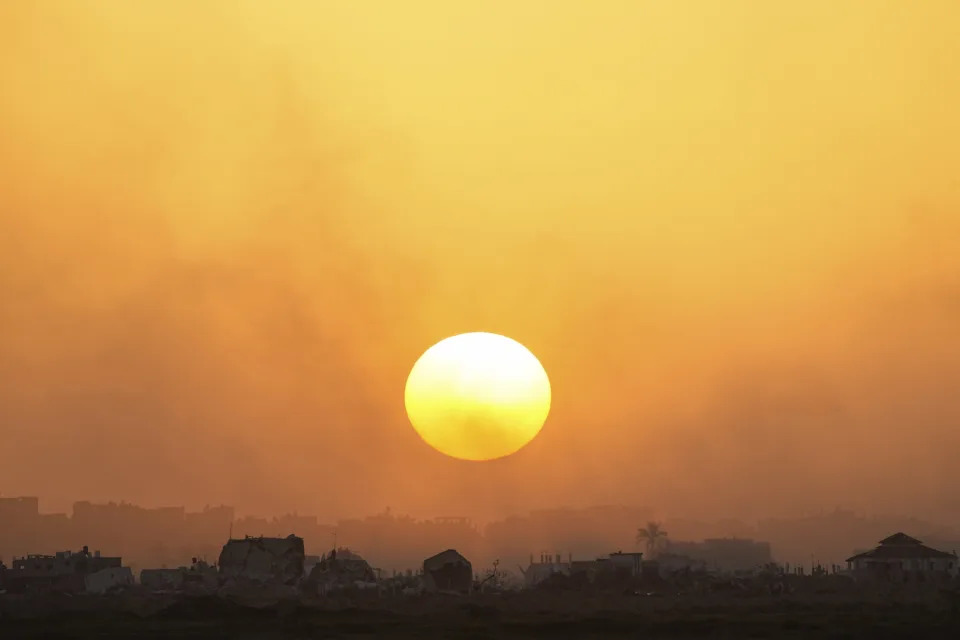

An Israeli Apache helicopter fires flares over the Gaza Strip as seen from southern Israel, Monday, March 4, 2024
ASSOCIATED PRESSMore
JERUSALEM (AP) — Israel ramped up its criticism of the embattled U.N. agency for Palestinian refugees Monday, saying 450 of its employees were members of militant groups in the Gaza Strip, though it provided no evidence to back up its accusation.
Major international funders have withheld hundreds of millions of dollars from the agency, known as UNRWA, since Israel accused 12 of its employees of participating in the Oct. 7 Hamas attacks on Israel that killed 1,200 people and left about 250 others held hostage in Gaza, according to Israeli authorities.
Philippe Lazzarini, the head of the agency known as UNRWA, told a press conference late Monday that he “has never been informed” or received any evidence of Israel’s claims, and this is not the first.
Every year, he said, UNRWA provides Israel and the Palestinian Authority with a list of its staff “and I never have received the slightest concern about the staff that we have been employing."
The only allegation communicated to him verbally was about 12 UNRWA staffers alleged to have participated in the Oct. 7 attacks, he said, and they appeared so serious that they were fired, and two U.N.-ordered investigations are underway.
The U.N. envoy focusing on sexual violence in conflict, Pramila Patten, said Monday there were “reasonable grounds” to believe Hamas committed rape, “sexualized torture,” and other cruel and inhuman treatment of women during the attack.
The attack sparked an Israeli invasion of the enclave of 2.3 million people that Gaza's Health Ministry says has killed more than 30,000 Palestinians. Aid groups say the fighting has displaced most of the territory’s population and sparked a humanitarian catastrophe.
UNRWA, which employs roughly 13,000 people in Gaza, is the biggest aid provider in the enclave.
The allegations Monday were a significant escalation in the accusations against the agency. Rear Adm. Daniel Hagari, Israel’s chief military spokesperson, did not provide names or other evidence to back up the vastly increased number of UNRWA employees it said were militants.
“Over 450 UNRWA employees are military operatives in terror groups in Gaza — 450. This is no mere coincidence. This is systematic. There is no claiming, ‘we did not know,’” Hagari said.
UNRWA in a statement accused Israel of detaining several of its staffers and forcing them, using torture and ill treatment, into giving false confessions about the links between the agency, Hamas and the Oct. 7 attack on Israel.
“These forced confessions as a result of torture are being used by the Israeli Authorities to further spread misinformation about the agency as part of attempts to dismantle UNRWA," the statement said. "This is putting our staff in Gaza at risk and has serious implications on our operations in Gaza and around the region.’’
After Israel’s initial accusation against UNRWA, the agency fired the accused employees and more than a dozen countries suspended funding worth about $450 million, almost half its budget for the year.
Juliette Touma, director of communications for UNRWA, had no direct comment on the new Israeli allegations.
“UNRWA encourages any entity that has any information on the very serious allegations against UNRWA staff to share it with the ongoing U.N. investigation,” she said.
Two U.N. investigations into Israel’s allegations were already underway when the EU said Friday it will pay 50 million euros ($54 million) to UNRWA after the agency agreed to allow EU-appointed experts to audit the way it screens staff to identify extremists.
Hagari also released a recording of a call he said was of an UNRWA teacher describing his role in the Oct. 7 attack.
“We have female captives. I caught one,” the male voice is heard saying in Arabic. A man on a second call, alleged to be an Islamic Jihad militant who Israel also claimed was an UNRWA teacher, is heard saying “I’m inside with the Jews.”
The military named the men, though the man in the first call identified himself in the recording by a different name. The military said that name may have been a nickname. The military did not provide evidence as to their employment with UNRWA.
The accusations came as Benny Gantz, a top member of Israel’s wartime Cabinet, met with U.S. officials in Washington while talks were underway in Egypt to broker a cease-fire in Gaza before the Muslim holy month of Ramadan begins next week.
Meanwhile, violence flared between Israel and Lebanon, amid inflamed tensions across the region.
An anti-tank missile fired into northern Israel from Lebanon killed a foreign worker and wounded seven others Monday, Israel’s Magen David Adom rescue service said. The Hezbollah militant group in Lebanon did not immediately claim responsibility for Monday’s strike.
Hours later an Israeli airstrike in southern Lebanon killed three paramedics from Hezbollah’s health arm, Lebanon’s state media said.
U.S. envoy Amos Hochstein arrived in Beirut on Monday to meet with Lebanese officials in an attempt to tamp down tensions.
The near-daily clashes between Hezbollah and Israeli forces have killed more than 200 Hezbollah fighters and at least 37 civilians in Lebanon. Around 20 people have been killed on the Israeli side, including civilians and soldiers.
___
Bassem Mroue in Beirut, Jack Jeffery in Jerusalem and Melanie Lidman in Kiryat Shmona, Israel, contributed to this report.
___
Find more of AP’s coverage at https://apnews.com/hub/israel-hamas-war
